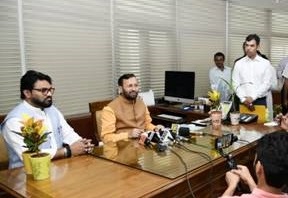India has announced its 2021-22 Union Budget on 1 February 2021 amidst the COVID-19 outbreak. This year’s budget stands out in several announcements that accelerate the country’s digital transformation efforts in the gig economy. The tech industry seems to be enthralled with these announcements and terming them as a massive boost for the country’s self-reliant objectives.
At Better World, we’ve captured the budget’s key points that are likely to support the tech and digital community.
Firming the start-up culture by reducing compliance on OPC
This year’s budget provides Rs 15,700 crores to the MSME sector. One of the significant highlights is the decision to incentivize One Person Companies (OPCs) by permitting OPCs, to grow without any paid-up capital and turnover thresholds. The residency limit for an Indian citizen who plans to set up an OPC has been minimized to 120 days from 182 days, and now Non-Resident Indians (NRIs) can also incorporate OPCs.
NRIs were previously not allowed to set up OPCs. However, with the new provision, any Indian citizen, whether resident in India or otherwise, can form an OPC. The country currently has about 30,000 OPCs in operation. This move is expected to give a much-needed boost for many OPCs and likely help new tech startups to emerge, helping to transform the economy.
The government also extended the eligibility for start-ups to claiming tax holiday and capital gains exemption for investment by another year – till 31 March 2022.
Social security for gig economy workers
The government has announced its plans to unveil a website to collect appropriate information on the country’s gig-workers and migrant workers so that it can implement robust social security schemes for them. Including gig-workers and freelancers in the government’s social security plan is highly crucial as the gig-economy size is expected to grow at a considerable level in the next five years, touching about $500 billion market size.
The concept of the distributed workforce has evolved from just an experimentation phase and most of the companies who are pacing their digital transformation efforts are at much ease to onboard contractual employees from anywhere in the world.
Gig-economy offers advantages such as flexibility to employees, especially in the areas of HR, IT, and creative to work as per their convenience by leveraging the latest technology tools. The mushrooming parallel economy, however, has been facing a lot of struggle to attract talented young people since it doesn’t offer any kind of social protection such as retirement benefits, leave benefits or minimum wages to date.
Indian government’s planned reforms would be of particular importance as they will enable the government to develop more structured health, wellness, and insurance policies for the country’s growing independent workers and freelancers.
Greater focus on research and development
The government has set aside Rs 50,000 crores in Budget 2021 for the National Research Fund (NRF), spreading across the next five years. The outlay will promote a culture of innovation, digital transformation, research, and growth in a coordinated way. It will also be used to build research capabilities at major universities and colleges. “In my July 2019 budget speech, I had announced the NRF. We have now worked out the modalities, and the NRF outlay will be Rs. Fifty thousand crores over five years. It will ensure that the overall 24 research ecosystem of the country is strengthened with a focus on identified national-priority thrust areas,” Nirmala Sitharaman, India’s Finance Minister revealed during the budget presentation. (See: Ravindra Kumar, President, IIT Delhi Alumni Association)
Proposal for world-class fintech hub at GIFT City
Another big announcement that has pleased the technology sector observers is the government’s announcement to set-up a premier fintech hub in planned Gujarat International Finance Tec (GIFT) city. Located on the bank of the river Sabarmati, the GIFT City is the government’s ambitious Special Economic Zone (SEZ) project, encompassing over 886 acres of land in Gujarat and includes commercial spaces, residential apartments, schools, hospitals, hotels, clubs, retail, and various recreational facilities. “This is a great step and demonstrates the government’s recognition of FinTech as a significant play in the financial sector. This should pave the road for the creation of the required regulations and frameworks for FinTech to work with conventional lenders and banks,” said Lalit Mehta, Co-founder & CEO of Decimal Technologies.
Digitization of railways
In another significant announcement to propel digital transformation in the country’s economic milieu, Rs 1.15 lakh crores have been earmarked for railways. A substantial proportion of these funds will be utilized for creating future-ready railway systems by the year 2030, ensuring robust connectivity and the use of technology to make rail transport safer and better.
This declaration is likely to give railways an excellent opportunity to test and implement emerging technologies such as artificial intelligence (AI), automation and machine learning (ML) to control operations and manage the Indian railway’s infrastructure more efficiently.
“The safety measures undertaken in the past few years have borne results. To further strengthen this effort, high-density network and highly utilized network routes of Indian railways will be provided with an indigenously developed automatic train protection system that eliminates train collision due to human error,” Nirmala Sitharaman, the Finance Minister, stated in her budget speech.
In addition to the above, announcements such as the government’s plan to hold a full-digitized national census in 2021, the launch of digital voter cards, and enhanced video conferencing capabilities for speedy judicial hearings reflect the government’s increased focus on digitizing the economy and developing the necessary infrastructure for new-age technologies and services.
Quotes
“The focus on innovation and R&D as an important pillar is a critical step in increasing the Indian IT sector’s export income. Along with this, the ‘Atmanirbhar Bharat’ budget also outlines initiatives for the gig economy, digital payments, human capital while also setting up fintech hub and National Natural Language Translation Missions. Therefore, with increased allocation towards infrastructure, financial inclusion, and healthcare, Budget 2021 promises to provide the much-needed economic velocity to India’s growth cycle,” – CP Gurnani, MD & CEO, Tech Mahindra
“Coming out of the pandemic year, the Finance Minister has laid down a well-rounded Budget. Focus on setting up of Fintech Hub at Gift City, enhancing digital payments, and using AI in governance – all provide a strong platform for Digital India. Allocating Rs 50,000 crore towards National Research Foundation will boost India’s Innovation Quotient on the global map and is a welcome move. Allocation of funds as incentives for promoting digital payments is also a step in the right direction and a significant step in ease of doing business. Lastly, increase in allocation for highways and railways will lead to employment generation and boost the economic growth of the nation,” – Karthikeyan Natarajan, President, and Chief Operating Officer, Cyient
“The budget is a major step in the right direction. It outlays a strong focus on infrastructure, healthcare, capital spending, disinvestment, monetization, job creation and digitization. These measures are not only progressive and recovery-led, if implemented correctly would ease the burden on the economy and lead India towards the projected V-shaped growth and development,” – Rajiv Bhalla, MD, Barco India
“This budget announcement confirms the government’s focus on developing infrastructure and skills, which will have short and long-term benefits to the Indian economy & people. Steps like international collaboration to develop new skills will help Indian youth prepare for modern job requirements and make them global-ready. The National Digital Educational Architecture (NDEAR) announcement is a welcome step, which will help build a Digital First mindset in the entire education system in India and help students and educators adopt new ways of learning and teaching. Besides, we welcome the doubled allocation for the MSME sector, which will incentivize our small businesses’ digital transformation that is the backbone of our economy,” – Ketan Patel, Managing Director – HP India Market.







0 Comments